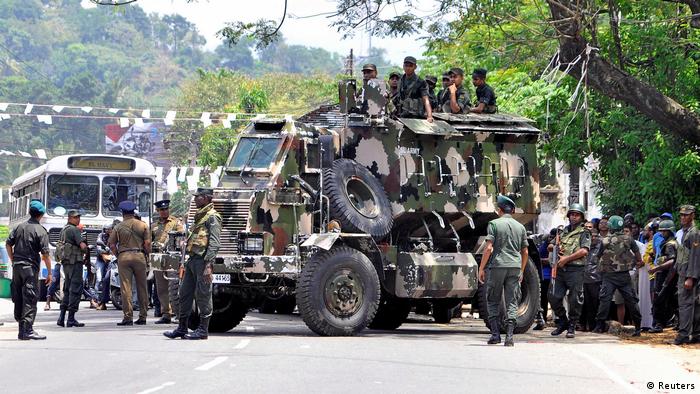Sri Lanka has granted its military and police emergency powers to arrest people without warrants after a day of violence that killed seven people and injured more than 200 and resulted in the resignation of Prime Minister Mahinda Rajapaksa.
As the Indian Ocean nation battles its worst economic crisis in history, thousands of protesters defied an islandwide curfew until 7am on Wednesday to continue protesting. Some reports surfaced of angry protesters attacking politicians associated with the government, setting fire to homes, shops and businesses they own.
The situation had largely calmed by Tuesday, barring reports of sporadic unrest, said police spokesman Nihal Thalduwa, adding that some 200 people had been injured on Monday.
The government of President Gotabaya Rajapaksa, the younger brother of the prime minister, outlined broad powers for the military and police to detain and question people without arrest warrants.
The military can detain people for up to 24 hours before handing them to police, while any private property can be searched by forces, including private vehicles, the government said in a gazette notification on Tuesday.
“Any person arrested by a police officer shall be taken to the nearest police station,” it said, fixing a 24-hour deadline for the armed forces to do the same.
“There is a heavy military presence. On our way, we were stopped at multiple checkpoints manned by the air force, some by the army and the navy,” Al Jazeera’s Minelle Fernandez said in her report from Colombo on Tuesday.
Some analysts expressed concern over the potential for abuse of the emergency measures.
“In a situation where there is both a state of emergency and curfew who can monitor to ensure these regulations are not abused?” said Bhavani Fonseka of the Centre for Policy Alternatives think-tank based in Colombo.
The president had already declared a state of emergency on Friday as protests escalated.The attacks on government figures came in apparent reprisal for an incident just hours before Rajapaksa’s resignation.
Rajapaksa spoke to hundreds of supporters gathered at his official residence on Monday following reports that he was considering stepping down.
After his remarks, many of them, armed with iron bars, stormed a camp of those protesting against the government, beating them and setting fire to their tents.
Police used water cannon and tear gas to disperse the skirmishers, after having initially done little to hold back the government supporters, witnesses told the Reuters news agency.


